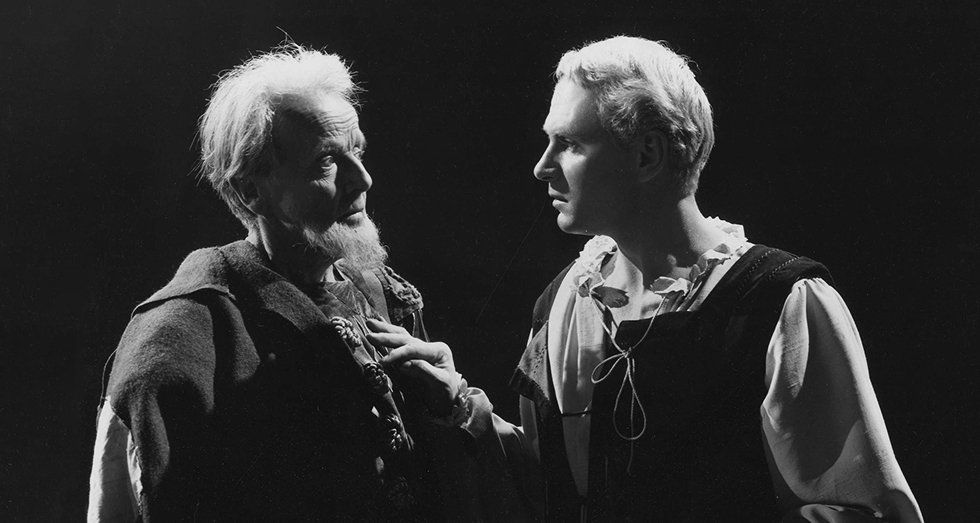Hamlet

HAMLET is my third Shakespearean film. The first was in 1936, for the 20th Century production of AS YOU LIKE IT. Then in 1944, Laurence Olivier approached me to do the score for his Technicolor production of HENRY V. And now, finally, HAMLET.
Writing music for the screen is undoubtedly a specialised job. To begin with, the composer is rigidly disciplined in his work by the time factor. For example, in HAMLET (as in all other films) my first contact with the production was the arrival of the script. This meant that I could obtain at least some idea of the treatment envisaged by the producer-director, in translating this monumental work into celluloid. An occasional visit to the film set also gave me some impressions of how the project was coming along.
The real work, however, begins when the picture is complete - complete, that is, in what is called the rough cut. It is only at this stage that the full atmosphere and dramatic impact of the screen play can be seen. However much a composer may examine the scenario, he can never grasp all those little individual touches which a director adds while he is shooting the picture on the floor. Then, again, there is this time business. After I have seen the film with the director and music director, the editor passes me a type-written sheet giving the exact timings of each section of the film to which music will be fitted. For example, a sequence may call for one minute twenty-three seconds of music; one minute twenty-four seconds is too long, and one minute twenty-two is too short. This means that a composer must, right from the start, adjust his approach to the composition. In writing for the concert hall, he can work out his ideas to suit himself. His symphony may run for twenty, thirty or fifty minutes. Not so in films. The form and content of the music is governed absolutely by the exacting requirements of the pictures on the screen.
There seems to be an idea among film people that a composer can turn out pages and pages of fully orchestrated manuscript just on the spur of the moment. The sort of things that happens is that the unfortunate writer comes to the studio, is shown the film, finds that there is a total of fifty minutes of music required, and some bright spark in the music office says, "That's lovely. We can book the orchestra in two weeks' time and get the whole thing in the bag." Frankly, two weeks is no earthly use for fifty minutes' music, as anyone who has attempted full-scale composition will know. I think that composers as a whole should decry this bad aspect of film making and see if some arrangement cannot be made whereby the composer is guaranteed a certain reasonable time in which to deliver his score, and I myself always insist on this.
In the case of HAMLET, I received every consideration from Laurence Olivier, and the film unit, in that the music recording dates were spread over a month, thus giving ample time to consider the results of each of the recording days' work, and allowing time for discussion before proceeding to the next music section. The closest collaboration was maintained between Laurence Olivier and myself, and some of my musical ideas were evolved from suggestions from Laurence Olivier.
Film Music Notes: March-April 1949
Publication: Film Music Vol.VIII / No.4 pp. 4-5
Publisher: New York: National Film Music Council
Copyright © 1949, by the National Film Music Council. All rights reserved.



